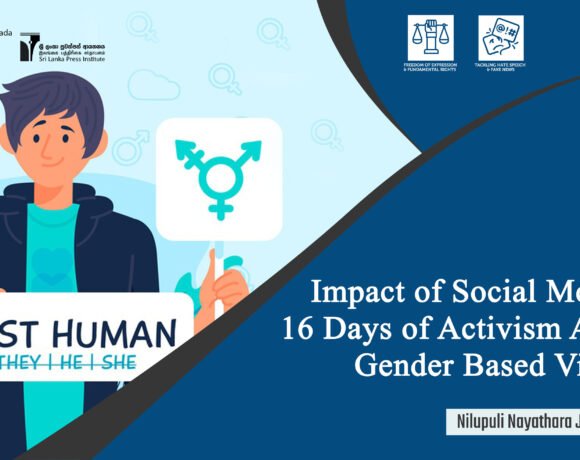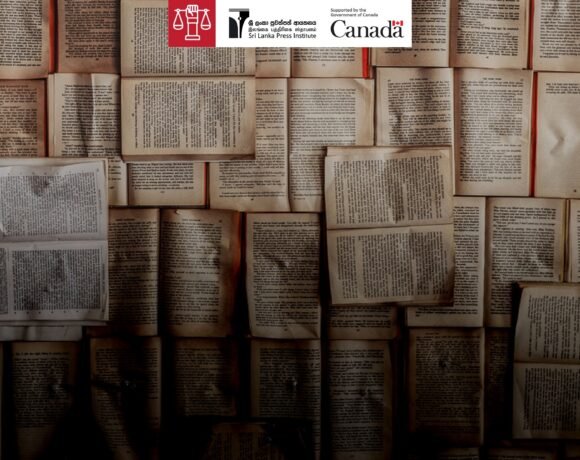
The appointment of female DIG and Sri Lankan Woman
Sampath Deshapriya
Thirty two senior Superintendents of police have complained to the Supreme Court against the appointment of Bimshani Jasinghearachchi as the first and the only female DIG in Sri Lanka. They have been arguing that the word ‘women’ is not included in the statement related to the promotion criteria in the service of Sri Lanka Police. The whole society is criticizing this action taken by the senior superintendents by taking the word ‘women’ seriously granted when the newly appointed DIG has fulfilled all the required qualifications. Anyhow different social communities have begun discussions depending on their level of knowledge regarding this matter. Both men and women getting engaged in these conversations is an important tendency.
One of the Senior Superintendents in the complaining team is a lawyer. Thus it is problematic when they reach the Supreme Court for such a matter knowing the prevailing constitutional law in the country. The challenge that the newly appointed female DIG has faced today cannot be named as an individual problem. It can be generalized as a situation most of women face in the present society. Therefore, it is important to focus attention on the position that women hold in constitutional institutions in Sri Lanka.
The constitutional acceptance of female equality and gender equality should be key principles of Sri Lankan state governance. In the 12.2 statement of the Sri Lankan constitution which was established in 1978, the principle of treating women with equality is clearly discussed. Furthermore, Sri Lanka has also signed the human rights conventions of the United Nations. The convention on the elimination of all forms of discrimination against women is called the CEDAW convention. Sri Lanka is also a member of that convention. Additionally, a commission of elites is appointed to look into the problems that Sri Lankan women face and they regularly observe the matters of women in Sri Lanka and how they are addressed by the government. The most recent investigations of this commission have revealed that the women in Sri Lanka have not had enough opportunities to engage in political and public affairs during the past few decades. They have focused attention on the decrease of women’s representation in the parliament up to 5 percent and the decrease in women representation in local authorities. After their studies and investigations, the women’s representation in local authorities was increased up to 25 percent by law.
The CEDAW commission has suggested the Sri Lankan government in 2017 organize awareness programs for citizens and political parties about the importance of getting women’s participation in making decisions. According to them, such awareness programs would remove the monotonous image about women which leads to various types of discrimination. Therefore the rights of women are protected through the constitution. In 1993, Sri Lanka Women’s Charter was established with the purpose of eliminating all forms of discrimination against women. Thirty-two men reaching the Supreme Court against an appointment of a woman as the DIG while such a system of law is prevailing in the country cannot be identified as an individual matter which is faced only by Sri Lankan women. It can be identified as a situation created by cultural, economical, and religious concepts in any society. Therefore it has become a problematic situation for the whole womenkind in the world.
People highlight the fact that being a woman is not a problem by emphasizing the appointments of Sirimavo Bandaranaike as the first female prime minister, Chandrika Bandaranaike Kumaratunga as the former president, and Shirani Bandaranaike as the former Chief Justice. The appointments of the former prime minister and the former president can be identified as actions that took place as a result of some special social and political reasons. On the other hand, these appointments can be named as extensions of male domination in the related fields. It is a known secret that these appointments took place due to the assassination of their husbands. There are strict limitations to how women should behave in society, the workload of her, and the level of freedom she should entertain. The position of women in society has been described by different poets, literary artists, economical scientists, politicians, elites, and religious leaders according to their individual level of understanding.
It is evident that the newly appointed DIG has faced several challenges in her life as a woman during her journey. Even now she is experiencing such challenges. Whatever the law prevailing in the country this situation might change according to the way of accelerating state governance principles. Whatever the women’s rights are mentioned in the constitution, the police reports have silently hinted that a woman cannot be appointed for the position of a DIG. Many amendments should be made not only in the police reports but also in the system of law. Even though there are several amendments that took place in the system of law, there can be seen few inherited hypothetical laws that do not go out of date with time.
If there is pressure from religious and cultural basements when updating the laws related to rights and freedom, it should be lead to a direct discussion. The system of Kathi courts which is a topic of the current discussion said to be suppressing Muslim women. Their rules are not updated as the police reports. There is no much difference between the ideas of the majority of masculine political leaders and modern Sri Lankan women. Women are being very faithful to the limits that are decided by the religious, cultural, economical, and political atmospheres in the society. Even though there are exceptions to this system, it does not reach a satisfactory level. Therefore, the mentality of the citizens should be changed on a vast scale.








